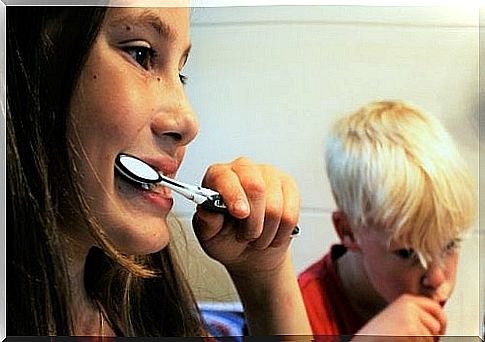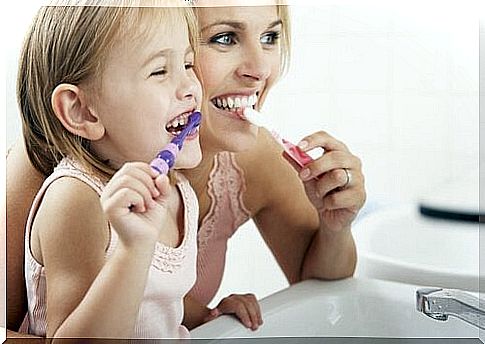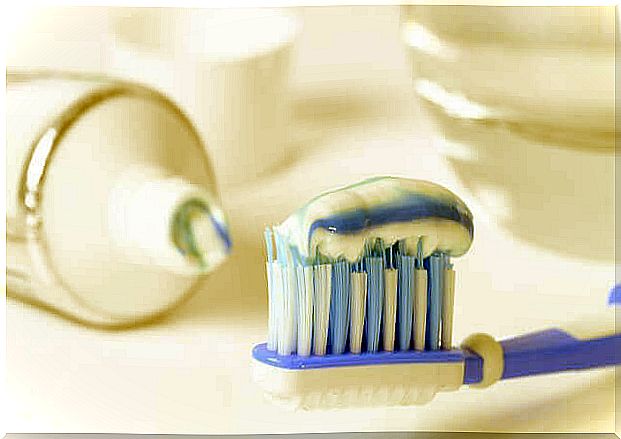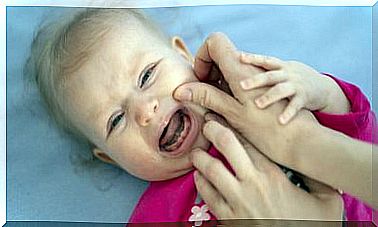Oral Hygiene At School

Oral hygiene at school is necessary, especially during preschool and elementary school. Not only because it helps to establish a good habit of taking care of the teeth, but also because it helps the child to promote a better self-image in relation to peers and friends.
Remember that there are many children who eat breakfast and also have lunch at school. When they go so many hours without brushing their teeth, they can develop halitosis. This, combined with poor hydration and a diet high in sugars, can promote cavities, gingivitis and other problems.
Poor oral hygiene not only causes bad appearance or halitosis, it can also cause pain (mild to severe intensity), difficulty eating, infections, among others.
That’s why hygiene is so important. Certainly, it should be taught to children in a fun and dynamic way , in the form of tips, for example, so that it is easier for them to put it into practice in their daily lives.

The importance of oral hygiene
Oral hygiene is of great importance to lead a healthy life, since the oral cavity is the main entry point for microorganisms to invade our body.
In this sense, a problem in the oral cavity can spread to other parts of the body and, thus, cause the appearance of unfavorable symptoms in the rest of the body.
Although it may not seem at first glance, teaching children not to put anything in their mouths, as well as washing their hands and brushing their teeth, helps considerably to prevent illnesses of all kinds. This promotes well-being and, consequently, good development in the school environment.
School is the place where children learn certain skills and also reinforce others that have already been acquired at home. In this sense, oral hygiene is by no means excluded.
It is important that the habit is consolidated so that, in the future, the child grows and becomes a responsible adult, who knows how to take care of himself, including aspects as simple as oral health.
What does oral hygiene at school involve?
1. Daily teeth hygiene
Initially, younger children can brush horizontally with a toothbrush. But after a child is 10 years old, he should know that the bristles should be positioned at a 45° angle to the gum.
This is a maneuver called the ‘Bass technique’. When done, it removes much of the dental plaque accumulated on the edge of the teeth, at the junction with the gums.
Regarding the concentration of fluoride in toothpastes, the use of pastes with a content of up to 500 parts per million (ppm) of fluoride ions is recommended. This is for children between the ages of 2 and 9, and you need to make sure that, after brushing, they remove all the toothpaste from their mouths with lots of clean water.
Meanwhile, for children over ten years of age, the fluoride concentrations in the toothpaste should be between 1000 to 1450 (ppm) and the rinse at the end of brushing should not be excessive for the effect of fluoride on teeth. can be used correctly.

2. Proper nutrition
Without a doubt, schools should program activities with which children can understand the importance of consuming healthy foods. And in which they can also identify which foods are beneficial to the body and which are not.
Mainly because, after all, a balanced diet directly intervenes in the oral health of both children and the general population.
3. Periodic appointments with the dentist
Certainly, the issue of oral hygiene at school should promote in children the importance of periodic consultations with the dentist by making them aware of the importance of examining and controlling the hygiene of the oral cavity.
In this sense, educational institutions can program activities in which children get to know the role of oral health professionals and also learn how to consult with a specialist, for example. In this way, children will be interested in learning and will lose their fear of dental appointments.
Oral hygiene at school is not difficult to achieve if a good example is set and children are supervised. On the other hand, it is always advisable to work in a team (parents and educators) to achieve the goals. That way the work will be much more enjoyable for all parties, including the child.









